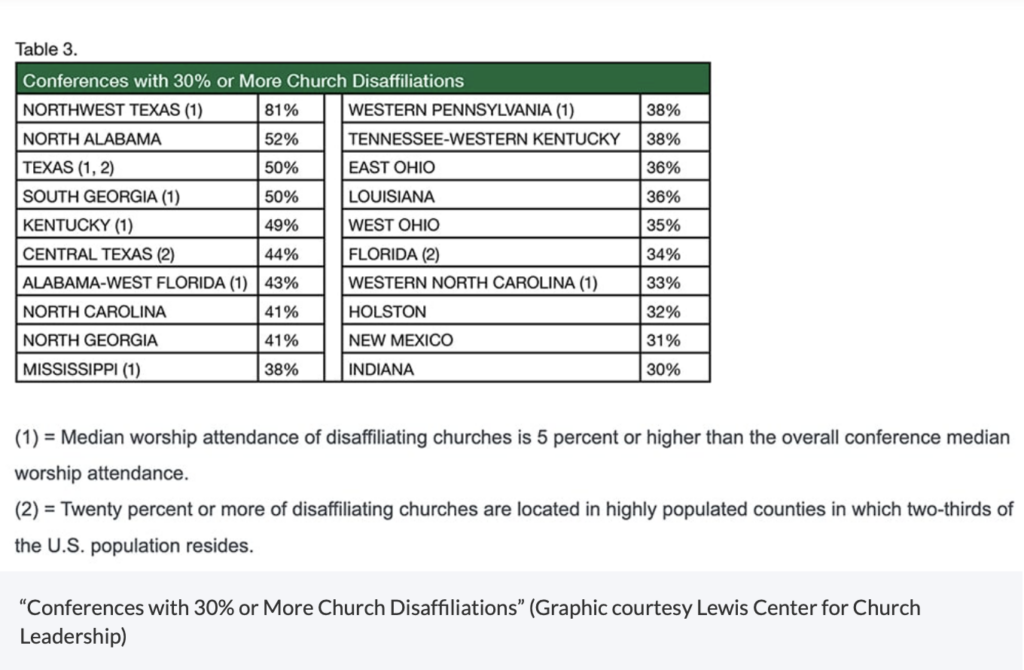
According to reports the once United Methodist Church has lost about 25% of its congregations and members since 2019. While it is easier to trace where the congregations ended up, it is more difficult to sort out what happened to the people in them. Here is the graph of the congregations:
You can see that, predictably, the highest number of congregations leaving is in the South. All of this is interesting, perhaps most interesting is that the disafilliating congregations have a 5% higher median worship attendance. This should be enough to refute the idea that those leaving are mostly small congregations.
Hidden in the stats is the rather alarming realization that people are also leaving and many of them not for another Christian congregation. This is what happened when the the Episcopal Church, the Presbyterian Church USA and the Evangelical Lutheran Church in America all adopted more aggressively liberal and intolerant social postures -- especially with regard to the LGBTQ+ agenda. The numbers of congregations that broke away was smaller than expected but the numbers within the congregations that stayed and those that left diminished. In fact, just looking at the ELCA alone, you have witnessed the numbers drop from a reported high of 5.2M members down to less than 3.5M members yet you find that the actual numbers reported by the LCMC or NALC denominations formed by those departing cannot account for much more than 500K of those. So what happened?
The dropouts from American churches probably outnumber those who show up. While Missouri certainly felt the loss of some 120K folks who established the AELC (which later merged into the ELCA), those numbers did not really show up for years. Once they did, they were accompanied by an even larger contingent of people who simply stopped coming. The gulf between those who claim membership and those who attend has widened in Missouri just as it has within the more liberal denominations bleeding off members and people (though not quite as dramatic).
The reality is that we are not doing a very good job of keeping the folks we have. Or, might it be that we really did not have them in the first place? Certainly this is true of youth. Those who were counted but whose family attendance was spotty found it easier to drop out than those whose attendance was vigorous. That is the other side of things. Have we lost faithful members or fringe members? We should be sad about both but it might help us stave off the losses if we discern the difference here. The reality is that those who are fully onboard with the church's confession and teaching and actively and regularly participate in the life of the congregation assembled around Word and Sacrament and who are involved in the congregation's life of catechesis and service are so much less likely to drop out than those who are not. Rigorous catechesis is important but so is regular encouragement to faithful weekly worship and to participation in some avenue of the Church's life beyond Sunday morning.
The problem of hidden losses is not unique to the progressive side of Christianity even though it is more likely to be manifest to those who have lowered their standards of membership and who do not regularly review who are members. In this we all need to repent of our failures to keep tabs of those who once were faithful -- both pastors and parish leaders, to be sure, but especially their brothers and sisters in the pew. Back door losses are the bane of Christianity (and that includes all flavors!). If we receive new people without addresses such losses, we are not being faithful.

















